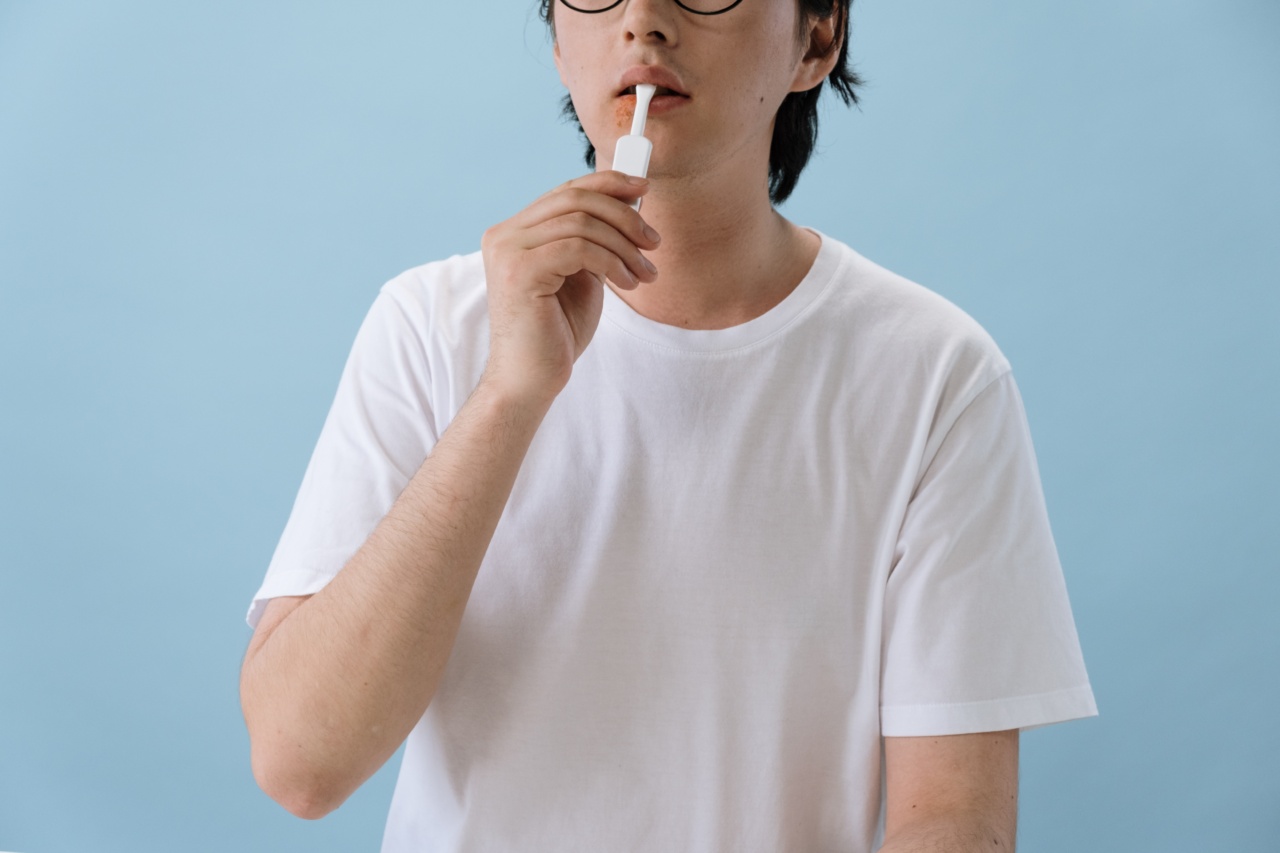Herpes is a common viral infection caused by the herpes simplex virus (HSV). There are two types of HSV: HSV-1, which primarily causes oral herpes, and HSV-2, which primarily causes genital herpes.
Both types can cause outbreaks on the skin and mucous membranes, resulting in painful sores or blisters.
How is Herpes Transmitted?
Herpes is typically transmitted through direct skin-to-skin contact with an infected person. This can occur during sexual activity, including vaginal, anal, or oral sex.
It is also possible to contract herpes through non-sexual contact, such as kissing or sharing utensils, towels, or other personal items with an infected person. Pregnant women can also pass the virus to their unborn child.
Common Symptoms of Herpes
The symptoms of herpes can vary depending on the individual and the type of herpes virus. However, common symptoms may include:.
- Painful blisters or sores on the affected area
- Itching or tingling sensation before the outbreak
- Burning sensation during urination (genital herpes)
- Fever, headache, and body aches
- Swollen lymph nodes
Prevention Methods for Herpes
1. Practice Safe Sex
Using condoms and/or dental dams consistently and correctly during sexual activity can greatly reduce the risk of herpes transmission.
However, it’s important to note that these methods may not provide 100% protection, as the virus can still be present on areas not covered by these barriers.
2. Limit the Number of Sexual Partners
Reducing the number of sexual partners can also lower the risk of herpes transmission. Having multiple partners increases the likelihood of coming into contact with someone who is infected.
It is important to be open and honest about your sexual history and to discuss testing and protection methods with your partner(s).
3. Avoid Sexual Activity During Outbreaks
During a herpes outbreak or when symptoms are present, it is crucial to avoid any sexual activity. This includes all types of sexual contact, even if the affected area is not directly involved.
Herpes can still be transmitted when no visible sores are present, as the virus may be shedding.
4. Get Regularly Tested
Getting tested for herpes and other sexually transmitted infections (STIs) is an essential step in preventing their spread. Regular testing allows for early detection and treatment, reducing the risk of transmission to others.
If you or your partner(s) have been diagnosed with herpes, it is important to inform any potential sexual partners.
5. Educate Yourself and Others
Education is crucial in preventing the spread of herpes. Learn about the virus, its symptoms, and transmission methods to protect yourself and others.
Share this knowledge with your friends, family, and sexual partners to create a culture of awareness and responsibility.
6. Avoid Touching Sores or Blisters
If you have herpes or think you might have been exposed, avoid touching any sores or blisters that may appear. Touching these areas can spread the virus to other parts of your body or to others through direct contact.
7. Practice Good Hygiene
Good hygiene practices can help prevent the spread of herpes. Wash your hands frequently, especially after touching any sores, blisters, or intimate areas.
Avoid sharing personal items such as towels, razors, or clothing that may come into contact with these areas.
8. Manage Stress
Stress can weaken the immune system, making it more difficult for your body to fight off infections like herpes. Find healthy ways to manage stress, such as exercise, meditation, or talking to a therapist.
Taking care of your mental and emotional well-being can contribute to overall physical health.
9. Boost Your Immune System
A strong immune system is better equipped to defend against infections. Eat a balanced diet rich in fruits, vegetables, and whole grains. Stay hydrated, get enough sleep, and engage in regular physical activity.
If necessary, talk to your healthcare provider about supplements or treatments to support your immune system.
10. Seek Medical Treatment
If you suspect you have herpes or have been exposed to the virus, seek medical treatment as soon as possible. Antiviral medications can help manage symptoms, reduce the frequency and duration of outbreaks, and lower the risk of transmission to others.
Your healthcare provider can provide guidance and support tailored to your specific situation.
Conclusion
While there is no cure for herpes, there are various preventive measures you can take to minimize the risk of transmission.
Practicing safe sex, limiting sexual partners, avoiding sexual activity during outbreaks, and getting regular testing are essential steps towards prevention. Education, good hygiene, stress management, and immune system support also play significant roles. Remember, early detection and medical treatment can help manage the symptoms and reduce the impact of herpes on your life.






























